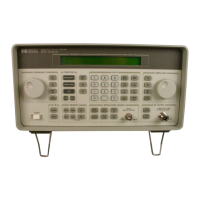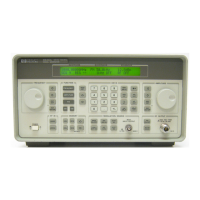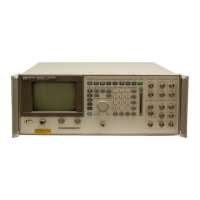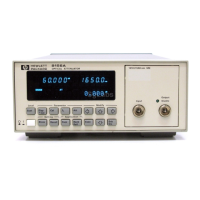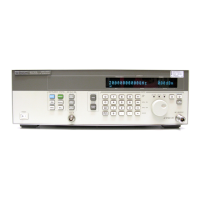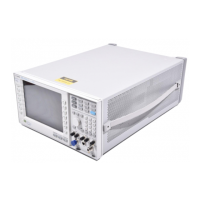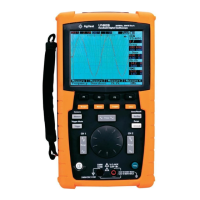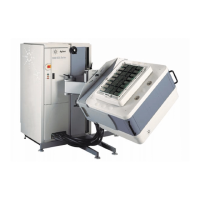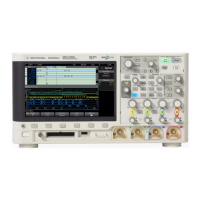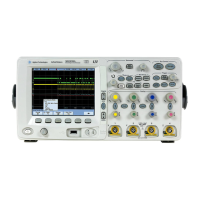3-4
Common Commands
*ESR? (Event Status Register)
See Also Refer to “Status Reporting” on page 1-11 for a complete discussion of status.
*ESR? (Event Status Register)
Query *ESR?
The *ESR? query returns the contents of the Standard Event Status Register. Reading this
register clears the Standard Event Status Register, as does *CLS.
Returned Format <status><NL>
<status> An integer, 0 to 255, representing the total bit weights of all bits that are high at the time you
read the register.
Example This example places the current contents of the Standard Event Status Register in the
numeric variable, Event.
10 OUTPUT 707;"*ESR?"
20 ENTER 707;Event
Table 3-3 lists each bit in the Event Status Register and the corresponding bit weights.
4 16 EXE - Execution Error Indicates whether a parameter was out-of-range, or was inconsistent
with the current settings.
3 8 DDE - Device Dependent Error Indicates whether the device was unable to complete an operation for
device-dependent reasons.
2 4 QYE - Query Error Indicates if the protocol for queries has been violated.
1 2 RQC - Request Control Indicates whether the device is requesting control.
0 1 OPC - Operation Complete Indicates whether the device has completed all pending operations.
Table 3-2. Standard Event Status Enable Register Bits
Table 3-3. Standard Event Status Register Bits
Bit Bit Weight Bit Name Condition
7 128 PON 1 = OFF to ON transition has occurred.
6 64 Not Used. Permanently set to zero.
5 32 CME 0 = no command errors.
1 = a command error has been detected.
4 16 EXE 0 = no execution error.
1 = an execution error has been detected.
3 8 DDE 0 = no device-dependent errors.
1 = a device-dependent error has been detected.
2 4 QYE 0 = no query errors.
1 = a query error has been detected.
1 2 RQC 0 = request control - NOT used - always 0.
0 1 OPC 0 = operation is not complete.
1 = operation is complete.
